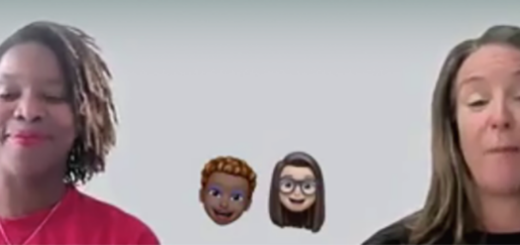Indigenous Updates: Welcome!
ʔa səy̓em̓ ʔiʔ tə nə siyey̓ə ʔiʔ tə nə siyal̕əxʷeʔ (Respected ones, friends and elders) ʔi ʔə ce:p ʔəw ʔeləy̓ ʔal̕ (Are you all well?) ʔəm̓i ce:p xʷməθkʷəy̓əm, Sḵwx̱wú7mesh, and səlilwətaɬ tə n̓a təməxʷ (Welcome to the land of Musqueam, Squamish and Tsleil-Waututh) hay ce:p q̓ə – Thank you all
We acknowledge that Vancouver Community College (VCC) is located on the traditional and unceded territories of the xʷməθkʷəy̓əm (Musqueam), Sḵwx̱wú7mesh (Squamish), and səlilwətaɬ (Tsleil-Waututh) peoples who have been stewards of this land from time immemorial.
“With love, we are creative. With it, we march, tirelessly. With it, and with it alone, we are able to sacrifice for others.”
(Chief Dan George, Tsleil-Waututh Nation)
Did you know that VCC’s manager of Indigenous Education Initiatives, Tanya O’Neill, is the great-granddaughter of late Chief Dan George? Chief Dan George (July 24, 1899 – September 23, 1981) had a long and fulfilling life, surrounded with love and family.
Chief Dan George was a leader and visionary for the people of Tsleil-Waututh, then known as Burrard Indian Band. Chief Dan George was an actor, author, and musician. He was a successful poet and wrote two books of poetry: “My Heart Soars” (1974) and “My Spirit Soars” (1982).
Chief Dan George also recited his famous work, “Lament for Confederation,” at Vancouver, British Columbia’s 1967 Canadian Centennial celebrations in Empire Stadium; the speech was a stirring, and unexpected, indictment of colonialism’s impact on First Nations people and helped galvanize native political activism in British Columbia and created support and awareness among non-natives.
We must learn from our past and his words to lean into reconciliation, decolonization and work together as one for the betterment of all humans.
VCC’s strategic plan for Indigenization
Indigenization at VCC: VCC — Strategic Innovation Plan
VCC’s journey towards decolonization, Indigenization, and reconciliation is rooted in a thoughtful understanding of history, alignment with the Truth and Reconciliation Commission’s Calls to Action and the United Nation Declaration of the Rights of Indigenous Peoples (UNDRIP (United Nations Declaration on the Rights of Indigenous Peoples)), an acknowledgement of past and persisting racism, and a commitment to improve educational and career outcomes for Indigenous people.
BCCAMPUS has created a series of guides for Post-Secondary Institutions. The series, Pulling Together, is widely available and our Indigenous Employees at VCC are here to help you with understanding how your contributions to VCC can be indigenized.
You can find this and many other resources at VCC’s library or through this link: Decolonizing Higher Education — Indigenous Pedagogy — LibGuides at Vancouver Community College (vcc.ca)
We honour those who attended Residential schools in Canada and their descedents who continue to heal from these atrocities; we stand with you. On September 30th each year, we take the time to stop, learn and reflect on how we can do our part to aid in reconciliation: “reconcili-action”.
In conclusion, here is an excerpt from an interview completed during the interview stages of the work of the Truth and Reconciliation Commission (TRC).
“Together, Canadians must do more than just talk about reconciliation; we must learn how to practice reconciliation in our everyday lives—within ourselves and our families, and in our communities, governments, places of worship, schools, and workplaces. To do so constructively, Canadians must remain committed to the ongoing work of establishing and maintaining respectful relationships.” (p. 17)
Meet our Indigenous Team at VCC
At Vancouver Community College, our Indigenous Team includes educators, facilitators, and managers from a variety of experiences, nations, and backgrounds.
We’re here to help. Reach out to us at indigenous@vcc.ca.



